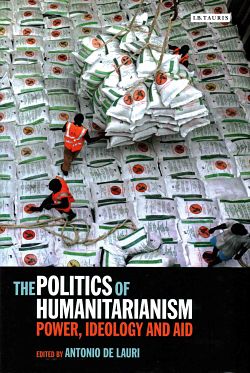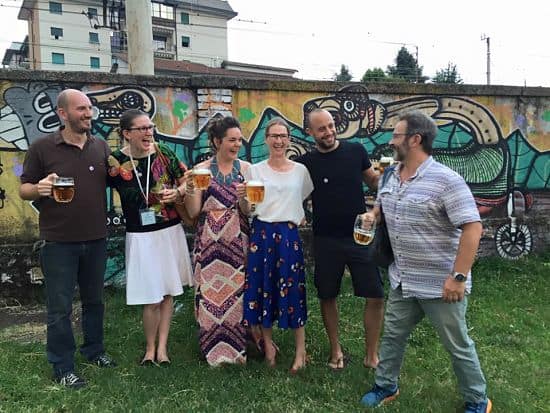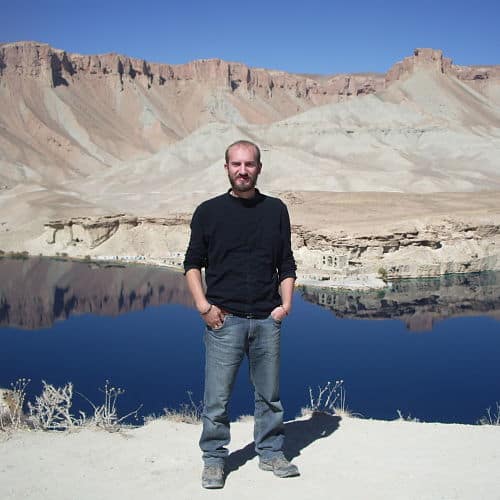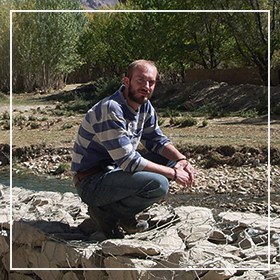Antonio, you decided to run for the elections of the new EASA committee. Can you let EASA members know a little bit about your academic path and interests?
I studied sociology and anthropology at the University of Milan-Bicocca where in 2005 I entered the PhD program in “Human Sciences: Anthropology of the Contemporary.” Since 2005 I have conducted several periods of field research in Afghanistan focusing on the legal reconstruction initiated in 2001 as well as on judicial practice, human rights and access to justice. In my PhD thesis – published as a book in 2012 – I discussed Afghanistan’s judicial system as an expression of a complex legal and political network which absorbs external influences while reinforcing the socio-legal and political impact of different traditional and religious authorities. The ethnography carried out in the primary courts of Kabul sheds light on the symbolic and material world surrounding judicial practice. This lies at the core of a broader process of social change, highlighting different normative and cultural models interacting in a relationship of continuity and innovative conflict with the past.
 After completion of my PhD in 2010 I spent a period as a visiting scholar at the Department of Anthropology of Columbia University, New York. At Columbia, I was particularly attracted by the work of Brinkley Messick, Mahmood Mamdani, Lila Abu-Lughod and David Scott. In New York I fruitfully elaborated my approach to post-war reconstruction and soon thereafter I received a “Fernand Braudel International Fellowship for Experienced Researchers” at the Foundation Maison des Sciences de l’Homme in Paris, where I worked on a project entitled “Law and Humanitarian Interventionism in Afghanistan.” During this post-doctoral fellowship I was also affiliated with the Laboratoire d’Ethnologie et de Sociologie Comparative and the Institut des Sciences Sociales du Politique in Nanterre, and I collaborated with the program “Justice and Governance in India and South Asia” (ANR, Paris). In 2012/2013, I was a Rechtskulturen Fellow at the Forum Transregionale Studien in Berlin as part of the program “Law in Context” (affiliated with Humboldt University). In 2014, I became a lecturer in social and cultural anthropology at the Department of Educational Human Sciences at the University of Milan-Bicocca where I taught “Cultures and Societies of the Middle East” until recently. During this period, I was also a research member of an ERC-funded project on slavery and new forms of bondage and I conducted research in Afghanistan and Pakistan among brick kiln workers focusing on debt, systems of dependence and freedom. I recently took up a permanent position as a senior researcher at the Chr. Michelsen Institute in Bergen, Norway, where I will continue my research in a lively interdisciplinary environment. There, I hope to further develop my interests in humanitarianism, militarism and the implications of war and poverty.
After completion of my PhD in 2010 I spent a period as a visiting scholar at the Department of Anthropology of Columbia University, New York. At Columbia, I was particularly attracted by the work of Brinkley Messick, Mahmood Mamdani, Lila Abu-Lughod and David Scott. In New York I fruitfully elaborated my approach to post-war reconstruction and soon thereafter I received a “Fernand Braudel International Fellowship for Experienced Researchers” at the Foundation Maison des Sciences de l’Homme in Paris, where I worked on a project entitled “Law and Humanitarian Interventionism in Afghanistan.” During this post-doctoral fellowship I was also affiliated with the Laboratoire d’Ethnologie et de Sociologie Comparative and the Institut des Sciences Sociales du Politique in Nanterre, and I collaborated with the program “Justice and Governance in India and South Asia” (ANR, Paris). In 2012/2013, I was a Rechtskulturen Fellow at the Forum Transregionale Studien in Berlin as part of the program “Law in Context” (affiliated with Humboldt University). In 2014, I became a lecturer in social and cultural anthropology at the Department of Educational Human Sciences at the University of Milan-Bicocca where I taught “Cultures and Societies of the Middle East” until recently. During this period, I was also a research member of an ERC-funded project on slavery and new forms of bondage and I conducted research in Afghanistan and Pakistan among brick kiln workers focusing on debt, systems of dependence and freedom. I recently took up a permanent position as a senior researcher at the Chr. Michelsen Institute in Bergen, Norway, where I will continue my research in a lively interdisciplinary environment. There, I hope to further develop my interests in humanitarianism, militarism and the implications of war and poverty.
What are your main motivations in joining the EASA Committee? Do you have some ‘insider’ knowledge of the association?
My idea to be more active within EASA matured with the 14th Biennial Conference in Milan. As a member of the local committee and co-convener of the plenary “Anthropology in Interdisciplinary Settings” I was directly involved in the organization of this year’s conference.
There are issues I really care about, notably the development of anthropology at the European level. I believe EASA can play an important role in affirming the importance of anthropology in the European institutional-research environment. Given the current opportunities of funding, Daniel Miller has rightly commented that, “We will have little excuse if Europe does not become a leading force in the discipline of anthropology as a result. I would argue that we should not use such extended resources merely to do more of what we currently regard as ‘anthropology’. Instead we should re-think what anthropology is” (Social Anthropology, “Forum: Rethinking Euro-anthropology”). Anthropologists should certainly be very active in making use of European funding schemes (for example ERC Starting, Consolidator and Advanced grants), yet in this process we should not only rethink anthropology (after all this has always been intrinsic to the anthropological tradition), but also contribute to the broader reconsideration of the idea of “research” itself and the way “intellectual work” is conceived today.
The precariousness of the new generations of scholars, the predominant role of “hard” sciences policies in governing funding programs, the idolatry of neoliberal efficiency, the proliferation of bibliometric standards, the reduction of intellectual freedom and freedom of research in several countries, all represent challenges that anthropologists have to face through a more persuasive and dynamic public engagement. EASA can represent a critical, important voice in canalizing and realizing such an effort.
As an association open to all sections of our discipline, EASA is a major facilitator for a convergence among research networks and professional sectors. Indeed, the role of anthropology in the public sphere also depends on a productive collaboration between anthropology and other disciplines and between academic and non-academic anthropologists. If I am elected this will be a major concern for me.
As an Editor of Allegralaboratory.net, you say that you are interested in promoting public anthropology. What would this concretely entail?
Allegralaboratory.net was launched in 2013 with the aim of increasing the audibility of anthropologists’ voices in the world. Because of the lengthy procedures that peer-review processes necessitate, we felt the urge to bridge the gap between ongoing scholarly and societal debates and traditional academic publications. We also thought that European academia needed a space where young and more senior scholars could exchange and discuss issues of academic and social relevance on an equal footing. Allegra was conceived as a lab because we wanted it to be experimental, not only in terms of writing genres and other digital content (videos, sound files, material objects), but also in terms of collaborations between disciplines and other existing Open Access initiatives. This year, for example, in cooperation with SAPIENS, we organized a competition to discover new public anthropologists. As Allies, all of us had experienced the neoliberal transformation of academia and the foreclosing of the sociological imagination that ensued. Allegra is a means to strengthen the small community of ‘loyal rebels’ we formed (Scheper-Hughes 2016): loyal to a discipline that had taught us to embrace human difference and resolutely rebellious against any attempt at formatting knowledge.
Allegralaboratory.net is a means to resist conformism and build a room of our own.
We, at Allegra, strongly believe that current global challenges (global warming, migration flows, poverty, populism etc.) necessitate anthropologists’ coming out of their ivory tower and breaking conventional barriers between practitioners, opinion makers and academics. For example, right after Brexit we published (in collaboration with Social Anthropology / Anthropologie Sociale) a series of posts reflecting on the meaning and consequences of this major political event. We wish to further develop such collaborations in the future and are now planning to go a step even further by negotiating space for Allegra’s authors in mainstream media.

A new generation of anthropologists is experiencing a series of concerns related to their profession and their future. How do you see the role of EASA in this scenario?
I think it is really important to be aware of the fact that the concerns of new generations of anthropologists are not simply contingent on the current historical moment. In a post published in Allegra in 2014 I discussed the problem of what I called bourgeois knowledge pertaining to the academic system, particularly in the fields of the social sciences and the humanities. I argued that the academic system still functions in such a way as to create many obstacles for those who need a salary to make ends meet, not to mention the difficulties encountered if you aspire to having a family of your own. In this regard, gender inequalities become particularly aggressive, to the extent that a PhD student or post-doc who becomes pregnant may easily be excluded from research groups or opportunities for future positions because of being considered “not reliable”.
I believe what anthropologists need to do is to reduce the hiatus between what they say and write and the way they practice their profession.
While we have given the right amount of attention to the ethical predicaments that come with ethnographic research, the issue of the ethics of our profession as such is something that we still need to address properly. “Don’t bite the hand that feeds you,” is a ritualistic answer that, in some contexts, an early career academic can get when highlighting some structural problems related to recruitment practices. Then, there are also ethical concerns about the way our research is being used or the way research groups are being managed, etc. These are issues that need to be publicly addressed instead of being relegated to individual struggles. One reason is that these issues do not only affect the life of anthropologists, they also have effects on the kind of knowledge we produce. In this regard, EASA can play an important role in promoting public debates and collective initiatives.







An impressive career, a powerful vision. I am, alas, an American who lives in Japan, but if I could vote, Antonio would have it.